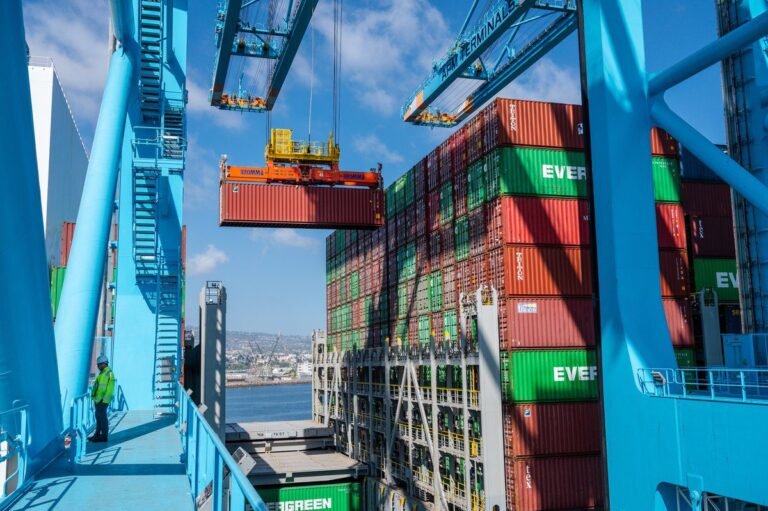The ILWU Opposes US-China Tariffs, Warns of Severe Consequences for Maritime Workers
The International Longshore and Warehouse Union (ILWU) has issued a forceful statement opposing recently implemented tariffs between the United States and China, warning of severe consequences for maritime workers and the broader American economy.
The current trade dispute has escalated dramatically in recent weeks, with the Trump Administration imposing a 145% tariff on Chinese imports, while China has retaliated with a 125% tariff on U.S. goods. The union reports that the impact is already being felt in the maritime sector, with Ocean Network Express announcing the cancellation of a shipping route as a direct response to these tariffs.
The ILWU, which represents dockworkers and warehouse workers along the West Coast of the United States—including the ports of Los Angeles and Long Beach, both major hubs for U.S. imports from China—as well as Hawaii, Alaska, and parts of Canada, argues that these tariffs pose a direct threat to hundreds of thousands of jobs connected to global trade.
“These tariffs are nothing more than a direct attack on the working class and should be opposed outright,” states the ILWU in their policy statement. The union highlighted that American families could face an additional $1,600 in annual costs for basic goods and services.
The union draws parallels to previous tariffs implemented in 2018 and 2019, noting that those measures failed to meaningfully change the US-China trade balance and instead resulted in higher costs being passed directly to American consumers.
The ILWU recently concluded a significant contract negotiation in June 2023, reaching a six-year agreement that addressed issues including port automation, wages, and work jurisdiction.
“The reality is clear: these tariffs don’t put ‘America First’ — they put American working people last,” the union stressed, arguing that the measures “will kill jobs, raise costs, and fuel economic instability that will ripple through every community in this country.”
Both the Port of Los Angeles and Port of Long Beach expect a slowdown in the coming months after a busy first quarter. The National Retail Federation’s latest Global Port Tracker predicts a dramatic shift in U.S. import volumes beginning in May, which would mark the end of 19 consecutive months of year-over-year growth.
Beyond direct maritime impacts, the ILWU points to broader economic consequences, including rising fuel costs and increased construction material prices that have already triggered layoffs across various sectors. The union particularly highlighted concerns about how these tariffs could exacerbate the ongoing housing crisis by increasing construction costs.
“It is undeniable that decades of free trade agreements have negatively impacted American workers and prioritized corporate profits at the expense of good paying, union jobs in America,” the ILWU stated. “However, this haphazard and destructive tariff plan is a sad excuse for a ‘fair trade’ policy. We demand fair trade policies that put working class Americans first, protect jobs, and reduce taxes on the American people, not trade policies dictated by a president’s whims.”
Subscribe for Daily Maritime Insights
Sign up for gCaptain’s newsletter and never miss an update
— trusted by our 109,169 members

